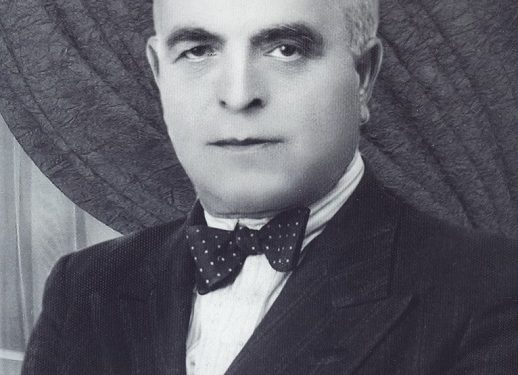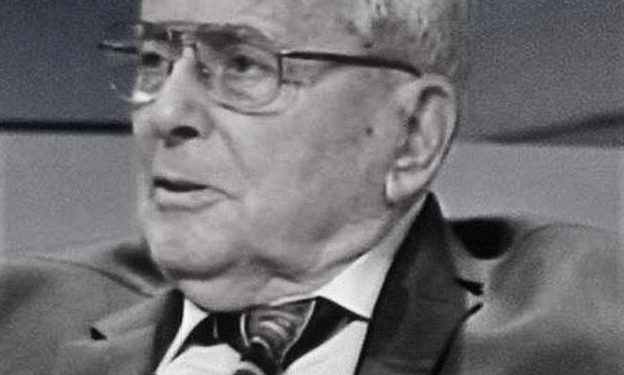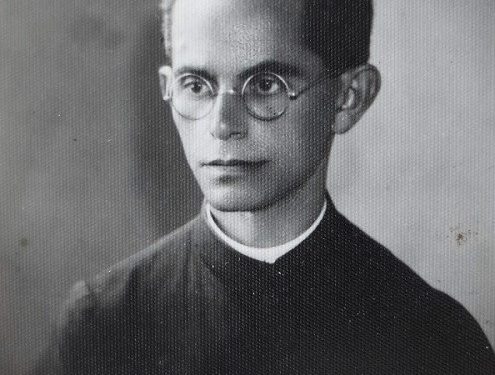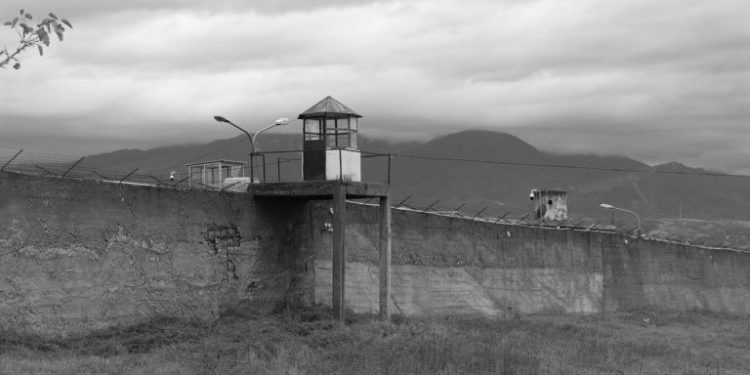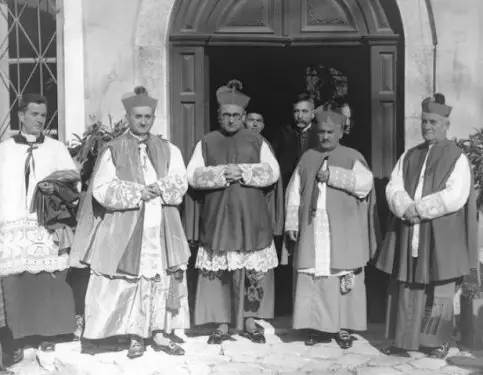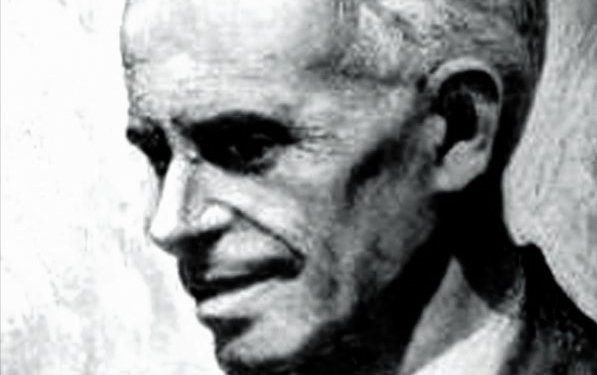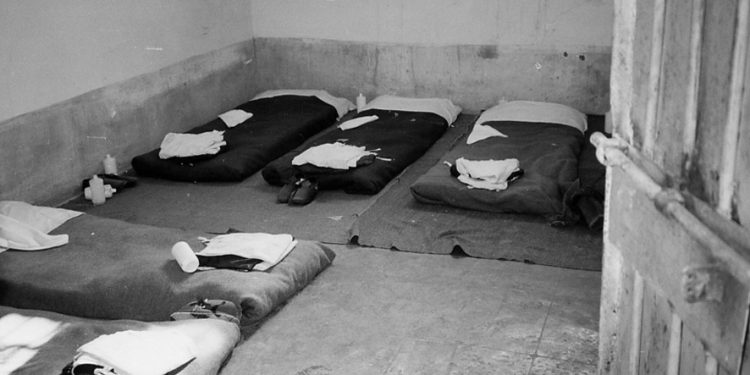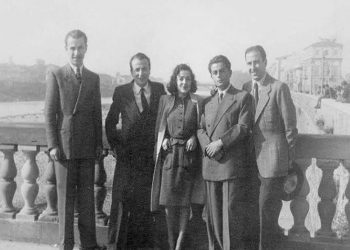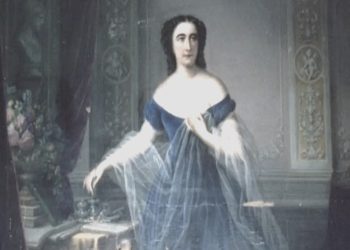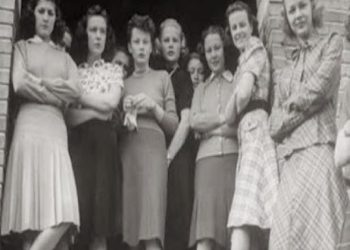From Agim Musta
Part fifteen
Memorie.al / On the fourth anniversary of the passing away of the well-known historian, researcher, writer and publicist Agim Musta, (July 24, 2019), former political prisoner, his daughters Elizabeta and Suela, gave him the right to exclusivity for the publication, by the online media Memorie.al, of one of the author’s most prominent publications, such as the ‘Black Book of Albanian Communism’. This work contains numerous data, evidence, facts, statistics and arguments unknown to the general public, on communist crimes and terror in Albania, especially against intellectuals, in the period 1945-1991. The publication for the first time of parts of this book is also the realization of one of the bequests of the historian Agim Musta, who, from the beginning of 1991 until he passed away, for nearly three decades was engaged with all his powers, working to raise collective memory, through book publications and publications in the daily press. All that voluminous work of Mr. Agim Musta, concretized in several books, is a contribution of great value to the disclosure of the crimes of the communist regime of Enver Hoxha and his successor, Ramiz Alia. A good part of the publications of Mr. Agim Musta, is also translated into English. Thanking the two daughters of the late Musta, who chose Memorie.al, to commemorate their father, from today we are starting the publication, part by part, of the “Black Book of Albanian Communism”.
Continues from last issue
-Portraits of fellow sufferers-
(1945-1991)
- Kalivopulli, dies in prison…!
Who has not heard the name of Dr. Kalivopulli in the former district of Gjirokastra? How many hundreds and thousands of children, women and men, has he saved from the clutches of death! His word was more balm than the medicine he gave. Fifty doctors in white shirts. His figure had already become a legend. The work and respect of the people, animated the 75-year-old Aleksandër Kalivopulli. And he continued to fight against the death of people.
Struggled to become more useful. He had started from the banks of the school. In all cycles, until the Faculty of Medicine of the University of Athens, where he excelled. In his postgraduate studies, he defended the scientific degree of Doctor. The offer to stay in Athens or other European cities did not entice this intellectual. He returns to work in Gjirokastër, near his hometown, Dropulli, where he works for 50 years, with exemplary piety and healed thousands of Albanian minorities.
In June 1959, Kalivopulli became known throughout Albania and abroad. The Kinostudio “New Albania” dedicated a documentary to him, where he presented his hard work to the public, while “Voice of the People” dedicated a special article to him. After that, the People’s Assembly decorated him for 50 years of service in Medicine. On this anniversary, they toasted his health and precious help and wished him to continue his work. The doctor was moved and with tears in his eyes said: “I will continue to work with all my strength, until my heart fails”! And what happened?!
On July 3, 1960, Doctor Kalivopulli was handcuffed to his wrinkled hands, hands that trembled from work and old age, hands that had examined thousands of patients. They tied him with irons like a criminal and killed him in prison, in a dark cell of Tirana prison. Who did they arrest? The democratic doctor, whom Zogu had followed and persecuted, while Italy, after the Italo-Greek War, had imprisoned and interned him in Italy for over a year.
After the arrest of the doctor in his house, there were earthquakes after earthquakes. From successive inspections, the house was turned upside down several times. My wife and all the children became a fist. The two boys and the two girls, with bleary eyes, trembled in their mother’s bosom. They stole 2000 napoleons of gold…! (Oh my God, is there a register where this money is written?!)
Similarly, 200,000 ALL in the savings bank, as well as all movable and immovable property. Two years in the investigator. Two years of torture and hermetic isolation. And 75-year-old Kalivopulli defies death. With his coolness and unwavering logic, with his pure and humane character, he told the investigators:
“How is it possible, Mr. Investigator, to go against my children, how is it possible for me to be an agent? Where do you have the facts?” And the fanatics of the regime, those who knew how to take life, did not listen to the voice of them. They continued to beat and torture him as a traitor. He remained alive as an indictment against the dictatorship. They sentenced him to 18 years in prison, for treason, without a witness. They brought the dangerous “criminal”, 75 years old, to the Burrell prison.
The prisoners received him like Aesculapius. He served them as a father for two consecutive years, until he passed away. As an unyielding man, although he trembled with suffering and old age, he served the needy. Exhausted, he walked the dark corridors of the prison, held by his arms by fellow sufferers. Gradually, his health declined and worsened.
He had turned into a ghost, a ghost that didn’t scare you, but made you adore him. Everyone loved him, served him and helped him as much as they could. Even though he was in agony, he never stopped giving advice to the sick. Those wretches listened with uplifted ears. Doctor Kalivopulli lit a thread of hope in those dark labyrinths of the prison.
The doctor erupted like a volcano with a decision that shook the prison. He announced a hunger strike. So he decided to give another blow, the last blow to Hoxha’s dictatorial regime. He stopped eating. The prisoners looked at him with admiration, pride and pain. Slowly his strength was leaving him; he felt loneliness and separation from his family.
He opened his eyes and saw the silhouettes of the children in the darkness of the cell, remembered their faces, their voices and smiled as if in a dream. In the dark cell, he started talking to himself, mentioning the names of the children: Socrates, Christo, Niqi…! But in the dark and cold dungeon of Burrell, no one was listening!
Although the fellow sufferers tried to ease his suffering, they stayed close to him; he began to feel pain and fear in his soul. Days passed and doctor Kalivopulli continued his hunger strike determined and unwavering. His eyes were sinking, the guards, who until that moment looked at him with contempt, were surprised by the doctor’s determination.
With the hunger gun, he would shoot and disarm. Opponents alarmed, began to call about the danger of the doctor, 12 days resisted, fighting to the death. On the 13th day and precisely on February 18, 1964, his heart stopped beating, the heart of the noble man, the heart of the professor, the heart of the one who gave his life in cell no. 10, of the Burrell prison.
The fellow sufferers closed his eyes, dressed him in his new clothes and with tears on his cheeks, kept a minute of silence. They buried him in “Kershia”, where they were buried with hundreds of other fatzins and where their remains are not found to this day.
- Honored and respected by all
I met Father Meshkalla in the forced labor camp of Skrofotina, during the years 1970-1972, where several hundred political prisoners worked like Egyptian slaves for the drying of the Narta marsh. Due to his advanced age, Pater Meshkalla did not work. He was with his fellow sufferers in spirit and mind, escorting them and waiting for them every day, with comforting and hopeful words.
Patër Meshkalla, one of the “Mandels” of Albania, stood out as a man with high human qualities. He had become a symbol of patience, pain and stoicism, of the brotherhood of political prisoners, regardless of religion, ideology or region. Born in Shkodër, in a poor citizen family, in 1901, he graduated with honors in Theology and Philosophy and lived in many European countries as a worthy soldier of Jesus Christ. He was a living encyclopedia and an unfailing teacher to his fellow sufferers.
When the prisoners discussed any linguistic term, even in a foreign language, or any other political, historical, philosophical, sociological subject and they disagreed with each other, Father Meshkalla had the last word, who gladly and without a hint of laziness, he gave the correct and precise explanation.
Patri had become a spiritual teacher for all fellow sufferers. He was respected by young and old alike and worshiped for his great spiritual strength. He was a master of conversation, and he did it with amazing skill. With the villagers, he talked with love about the affairs of the village, with the intellectuals, full of fire and about every problem, with a scientific competence.
His brain was a perfect electronic machine, but the communist dictatorship had punished him twice and he had suffered in the prisons of the red hell, 25 years of punishment. Never a word of revenge was heard from his mouth, against those who had caused him all that suffering and privation, without any right. Even when a fellow sufferer expressed his hatred towards the tools of the dictatorship, Father Meshkalla, with his pleading voice, said: “Forgive, O Lord, because they do not know what they are doing”!
His remarks with Mehmet Shehu, General Gjin Marku, when they were at the top of the communist pyramid and with prosecutors, judges, blind tools of Enver Hoxha’s dictatorship, will remain unforgettable. Father Meshkalla, with his words full of wisdom and iron logic, brought him to the pillar of shame. They tried to harass Patri as a cleric, but they went “for fur” and “returned naked”.
When a prosecutor, after reading the indictment and boasting about the large number of witnesses who testified against Patër Meshkalla, received this answer: “These wretches do not testify, Mr. Prosecutor! The bread of their mouths speaks, which you expect from them.” I don’t forget his eyes full of life and longing, when in June 1972, I was transferred together with many fellow sufferers, from the forced labor camp of Ballsh, to the mine-hell of Spaç.
Father Meshkalla hugged us with tears in his eyes and gave us hope and courage. We were not separated for a moment, until we, bound in handcuffs and chains on our feet and hands, were led away accompanied by guards armed to the teeth. His small and expressive face has not left my mind for a single moment. He has remained in the memory of thousands of former political convicts, as a worthy soldier of Christ and a loyal son of Albania. His name should occupy a place of honor in the history of our nation.
Interested in Father Meshkalla, near his former students, Zef Perolli and Matei Guralumi, both my friends and co-sufferers, I learned that Father Meshkalla has successfully led the St. Peter’s district of the Catholic Youth of Tirana from 1937-1945 . He was an excellent educator, as loving as he was strict and persistent with his students.
He taught his students, in addition to lessons on church catechism, also ethics, aesthetics and various parts of philosophy. Patri was passionate about nature and often organized excursions in its bosom. Patri, in his “St. Peter’s” circle, staged short theatrical pieces adapted from national and foreign literature. He was simultaneously a screenwriter, director and actor with rare skills. Patri was a keen publicist and wrote many articles, sketches and poems in the magazines “Leka”, “Hylli i Drita” and in other press bodies of that time.
With the courage that characterized him, he also wrote in the newspaper “Bashkimi”, during the years 1945-1946, before he was arrested by the communist dictatorship, defending the Albanian Catholic Church with dignity. After leaving his first imprisonment, in the early sixties, Patri, undaunted by the threats of the Security and the Party instructors, began his sermons to the frightened believers with the words: “Do not be afraid.”
Father Meshkalla was also a staunch anti-fascist and he expressed this openly at the time of the Italian occupation. He quarreled badly with the Italian chaplain, Pater Selca, and because of this, he was exiled to Italy. This caused fierce protests by young Albanian Catholics, who also sent a delegation to Rome, demanding the immediate release of Father Meshkalla. The Italian authorities were forced to release Patër Meshkalla after a few months, not aggravating the situation. On this occasion, the poet Mark Ndoja dedicates a poem to Patri, from which this stanza is taken:
“Shqibnija expects great work from you!
So, O Most Wise One, that Meshkalla.
For the great religious work of the Motherland
May I wait for you with my best wishes
So choose the boat, run, cross the sea,
Albania loves you under its wings, its own bird!
When he was released from his second imprisonment, at the end of the seventies, although at an advanced age and without any financial income, he remained unyielding in the face of the threatening pressure, for his physical annihilation, by the State Security. Many Catholic believers secretly went to Father Meshkalla, like Nicodemus to Christ, and the unconsecrated Father was close to them at every death and baptism. He died on July 28, 1988, and his funeral, quite unconsciously, turned into a silent demonstration of protest against the communist dictatorship.
His grave became a place of pilgrimage for the Catholic faithful. After the establishment of democracy, on June 28, 1992, Pater Meshkalla was honored in the cemetery of Shkodra on the occasion of the inauguration of his last residence, where many clergymen and his co-sufferers spoke, in the presence of hundreds of believers from Shkodra and those who came from Tirana. Memorie.al
The next issue follows




